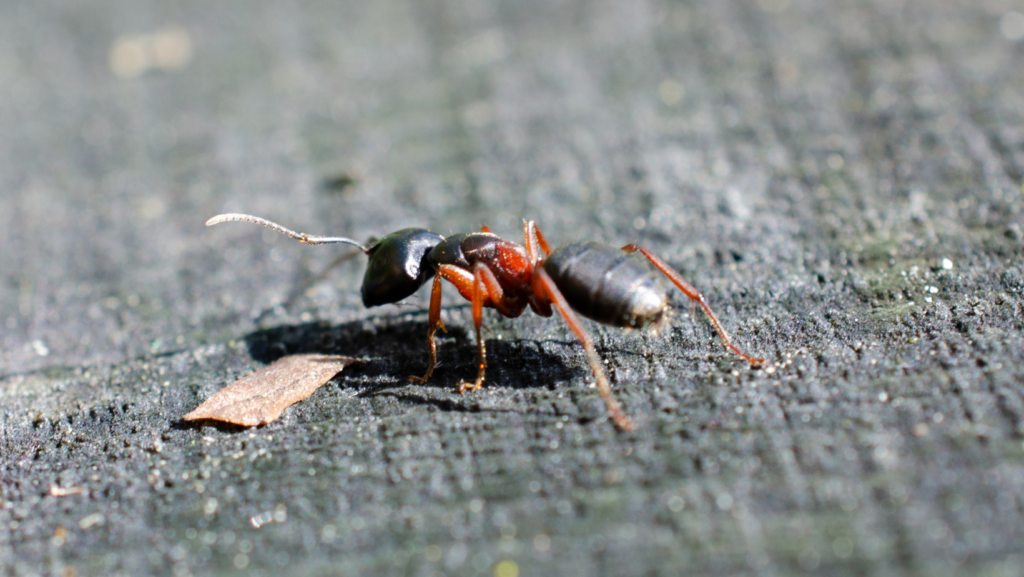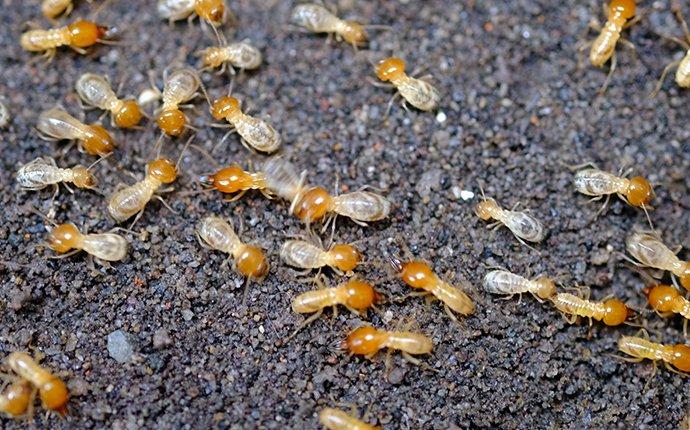Cost Effective Ant Control Solutions: Keep Your Room Ant-Free
Cost Effective Ant Control Solutions: Keep Your Room Ant-Free
Blog Article
Ecological Effect of Bug Control: Harmonizing Effectiveness With Sustainability
The ecological effect of pest control is a crucial concern that requires a fragile balance in between accomplishing efficiency in making certain and taking care of pests sustainability of our communities. As we make every effort to secure our crops, homes, and health from the dangers presented by parasites, the techniques we use can accidentally harm the atmosphere. From the usage of unsafe chemicals that leak right into our dirt and water to the unintentional consequences on non-target varieties, the effects of standard pest control methods are far-reaching. Nonetheless, there are emerging methods that offer expect a more lasting approach to pest administration. These remedies not just purpose to deal with the immediate parasite troubles however likewise think about the long-term health of our world.
Harmful Chemicals in Pest Control
The usage of unsafe chemicals in parasite control positions considerable environmental and wellness risks that warrant cautious factor to consider and reduction strategies. Herbicides, pesticides, and chemicals are commonly utilized to eliminate parasites, but their prevalent application can result in unintentional consequences. These chemicals can infect dirt, water resources, and the air, impacting not just the targeted insects however likewise beneficial insects, wild animals, and people.

To resolve these threats, incorporated bug management (IPM) techniques are being promoted as a much more sustainable option. IPM includes a mix of techniques such as organic control, environment manipulation, and the targeted use pesticides as a last resort (ant control kingsmountain nc). By embracing an all natural strategy to pest control, we can lessen the ecological and wellness influences associated with dangerous chemicals while efficiently managing pest populaces
Effect On Non-Target Types
Thinking about the unintended consequences of pest control techniques, the influence on non-target species is an important element that calls for detailed assessment. While pest control actions aim to target particular parasites, various other organisms in the ecosystem may be accidentally influenced. Non-target types, including beneficial pests, birds, creatures, and also plants, can experience indirect or straight harm from pesticide applications or biological control methods.
Pesticides can have sub-lethal or deadly results on non-target varieties. For example, pesticides developed to battle a specific bug bug might damage pollinators like bees or all-natural predators such as ladybugs. Furthermore, chemical residues can gather in the environment, influencing non-target organisms with time. Organic control agents, if not species-specific, can present risks to unplanned targets, disrupting the environmental balance.
To reduce the effect on non-target varieties, incorporated bug management (IPM) methods that emphasize an alternative technique to pest control are suggested. These techniques prioritize making use of eco friendly practices, lessening harm to advantageous microorganisms while efficiently managing pest populations. Performing extensive danger evaluations and monitoring the end results of parasite control initiatives are crucial action in securing non-target species and advertising total community wellness.
Soil and Water Contamination
Unplanned ecological repercussions of pest control methods expand past influencing non-target species, with significant implications for dirt and water contamination. Chemicals, herbicides, and chemical fertilizers utilized in insect control can leach right into the dirt and pollute groundwater, posturing a threat to both water and terrestrial ecosystems. Soil contamination can interfere with the balance of bacteria crucial for nutrition biking and plant development, resulting in reduced soil fertility and productivity. These chemicals can continue in the atmosphere for prolonged durations, accumulating in the dirt and possibly entering the food chain.
Water contamination is an additional essential concern connected with bug control techniques. To alleviate soil and water contamination from insect control activities, integrated bug management approaches that focus on sustainability and reduce chemical inputs are critical.
Air Contamination From Pesticide Usage
Direct exposure to air-borne chemicals throughout farming applications postures a considerable concern for air pollution control actions. Furthermore, chemical drift, where chemicals are lugged by the wind to unintentional areas, can lead to the contamination of close-by ecosystems and water bodies.

Techniques for Lasting Pest Control
In the world of agricultural techniques, carrying out sustainable bug control strategies is critical for keeping environmental equilibrium and securing crop yields. Sustainable insect control highlights making use of eco-friendly approaches to take care of insect populations successfully while decreasing harm to non-target organisms and ecological communities. Integrated Insect Monitoring (IPM) is an extensively taken on method that integrates biological, cultural, physical, and chemical control techniques to accomplish long-term parasite administration solutions.
Plant turning and diversity are additionally efficient article source strategies to interfere with pest life cycles and create less positive problems for bugs to prosper. Inevitably, by incorporating these lasting parasite control strategies, farmers can achieve an equilibrium in between pest administration efficiency and ecological stewardship.
Conclusion
To conclude, the environmental influence of pest control methods need to be meticulously considered to stabilize effectiveness with sustainability. Dangerous chemicals made use of in parasite control can bring about dirt and water contamination, air contamination, and injury non-target types - ant control services. It is important to apply lasting bug control strategies to reduce these adverse impacts on the atmosphere and advertise a healthier community for future generations
By adopting an all natural method to pest control, we can lessen the environmental and health influences linked with hazardous chemicals while successfully taking care of pest populaces.

To minimize the air contamination caused by pesticide use, it is important to adopt integrated bug monitoring strategies that prioritize the use of non-chemical insect control techniques, such as plant rotation, natural killers, and resistant plant ranges. Sustainable insect control highlights the usage of environmentally friendly approaches to manage pest populaces properly while minimizing damage to non-target microorganisms and environments. Integrated Bug Management (IPM) is a commonly adopted approach that incorporates biological, social, physical, and chemical control approaches to achieve long-term insect administration options.
Report this page